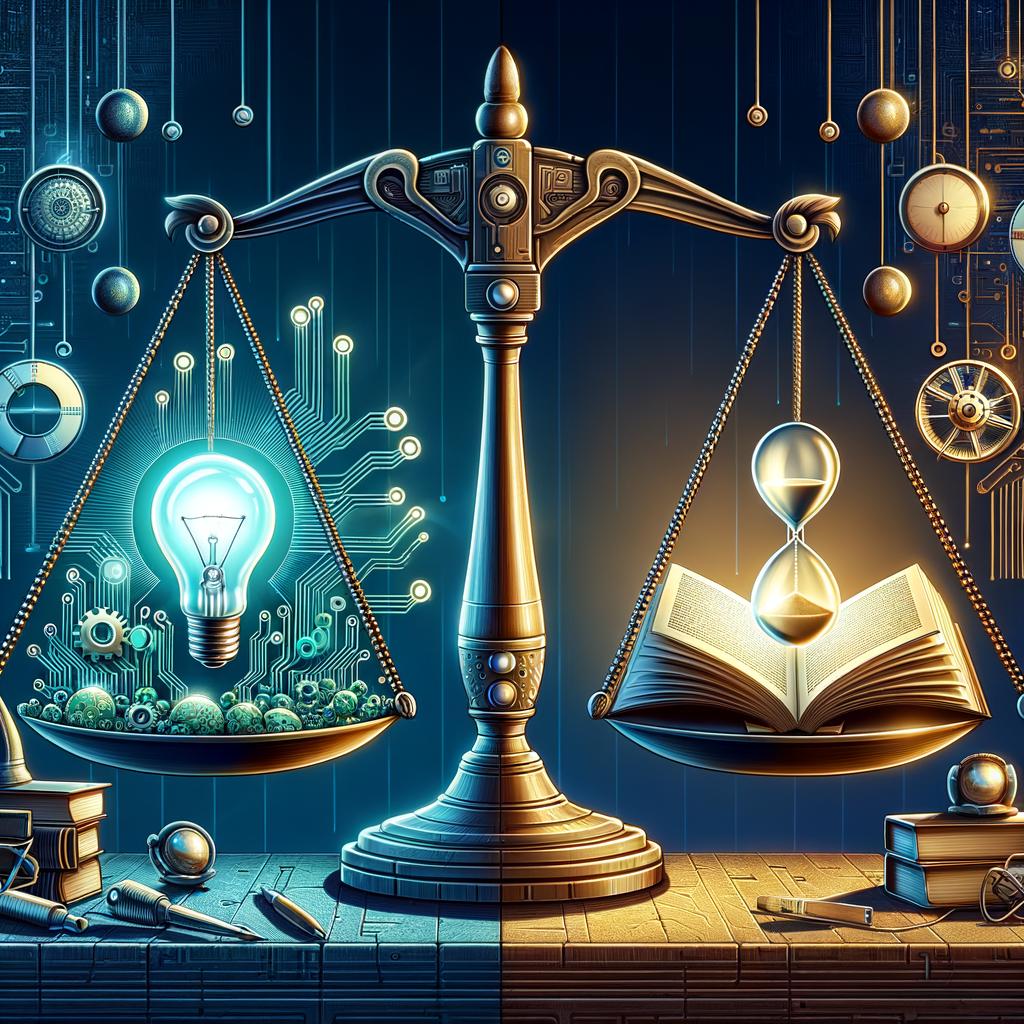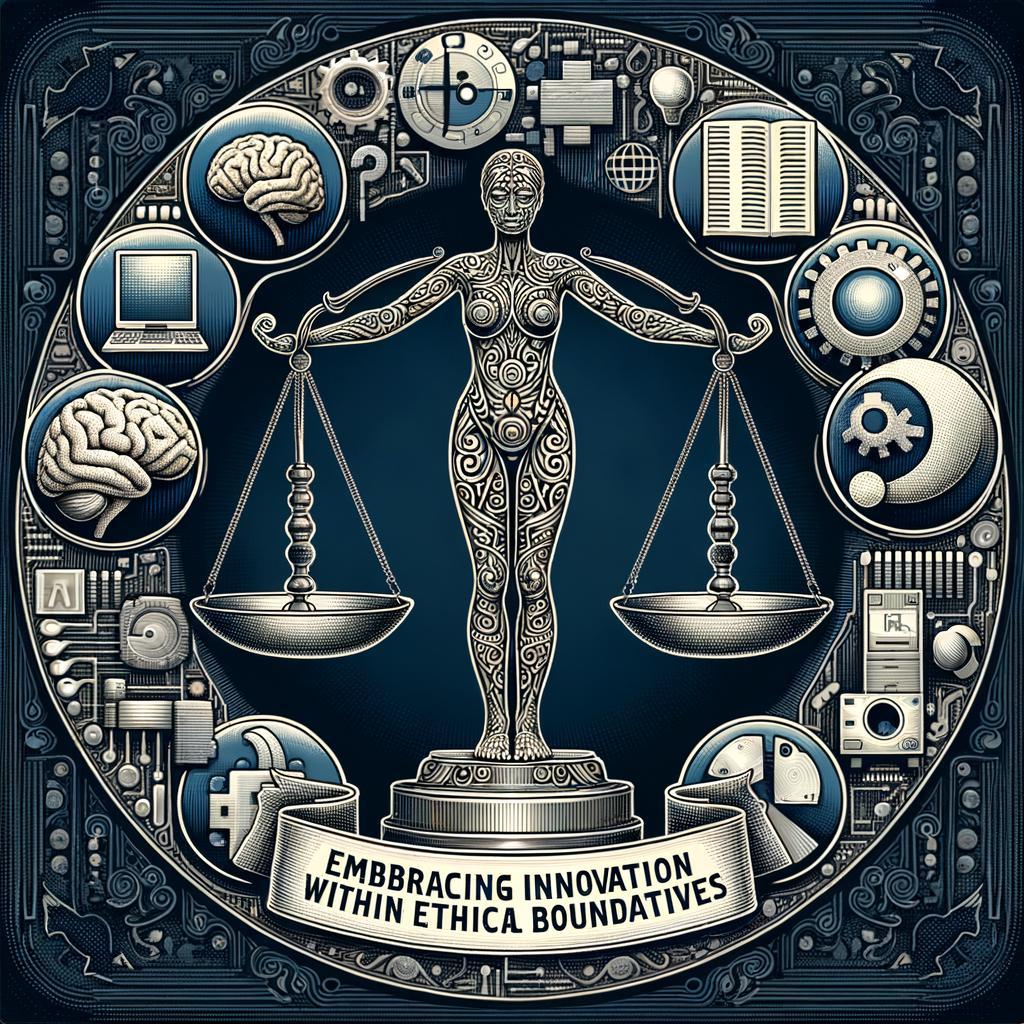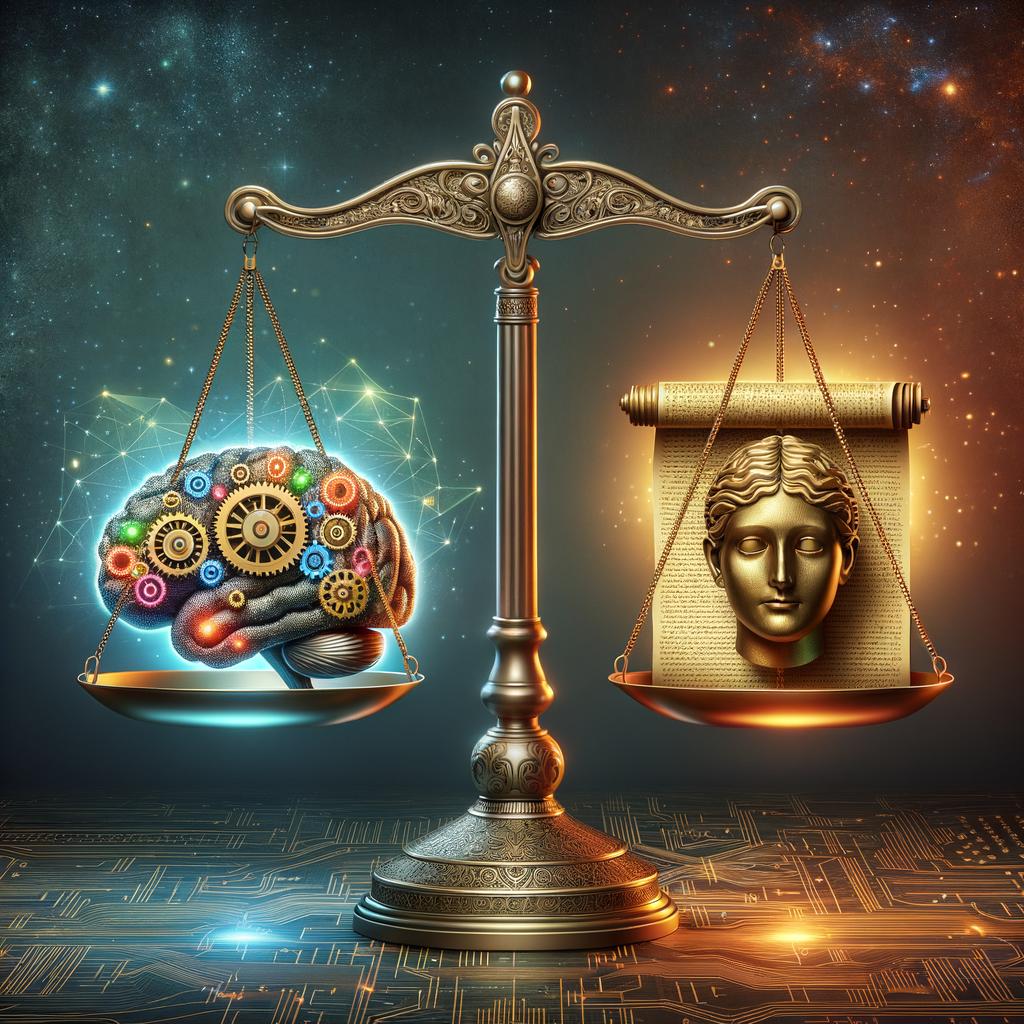In an age where artificial intelligence stands at the forefront of technological innovation, the conversation surrounding its ethical implications has never been more critical. As we navigate this uncharted territory, it becomes imperative to consider not only the advancements AI promises but also the moral framework guiding its development and application. From job displacement to data privacy concerns, the impact of AI resonates deeply within society, challenging us to find a delicate balance between progress and responsibility. This article takes a conservative perspective on the issue, arguing that a steadfast commitment to ethical principles can serve as a solid foundation for fostering innovation while protecting individual rights and societal values. By embracing AI ethics, we can encourage responsible technological growth that honors tradition and cultivates trust, paving the way for a future where innovation and morality coexist harmoniously. Join us as we explore the vital role of ethical considerations in AI development and the importance of a principled approach to navigating this transformative field.
The rise of artificial intelligence (AI) technology has ignited discussions within conservative circles about the ethical dimensions of innovation. It is crucial for conservatives to recognize that technological advancement should never come at the expense of our fundamental values. Embracing a moral framework for AI innovation allows us to navigate the complexities of this powerful tool while ensuring it aligns with our principles. By promoting ethical guidelines that prioritize transparency, accountability, and respect for individual rights, we can foster a culture of innovation that reflects our commitment to preserving human dignity and societal integrity.
Engaging communities in conversations about the implications of AI is equally important in this endeavor. Community involvement can ensure that diverse perspectives shape the future of AI, leading to more responsible implementation. We recommend accumulating insights through local forums, educational initiatives, and collaborative projects that encourage citizen participation. Our goals should include:
- Establishing ethical frameworks that govern AI development
- Encouraging transparency in AI algorithms and data usage
- Investing in education to equip citizens with knowledge about AI technologies
By promoting these actions, we can create an environment where technological innovation respects our conservative values and is held accountable to the communities it serves. As we look toward a future increasingly influenced by digital advancements, let us not forget the importance of ethical responsibility in ensuring that AI works for all, not against our core beliefs.
Key Takeaways
As we stand on the precipice of a new technological era, the call for integrating ethics into the innovation landscape has never been more pressing. Embracing AI ethics is not merely an ideological choice; it is a pragmatic approach that aligns with conservative values of responsibility, integrity, and the preservation of societal norms. By fostering an environment where ethical considerations are paramount, we can ensure that technological advancements serve to enhance, rather than disrupt, the fabric of our communities.
It’s crucial for conservatives to engage actively in the dialogue surrounding AI and ethics. By advocating for frameworks that prioritize accountability and transparency, we can champion a future where technology amplifies human capability while upholding our cherished principles. This isn’t about stifling innovation; rather, it’s about ensuring that innovative strides are made with mindful consideration of their impact on individuals and society at large.
As we move forward, let’s commit to being not just passive observers but active participants in shaping an ethical AI landscape. Engaging with these ideas will empower us to navigate the complexities of this new frontier, driving progress that reflects our core values. In doing so, we’ll not only protect what we hold dear but also pave the way for a responsible, sustainable, and inclusive future in the age of artificial intelligence. Embrace the discourse on AI ethics—it is, after all, a foundation upon which the innovations of tomorrow can be responsibly built.


